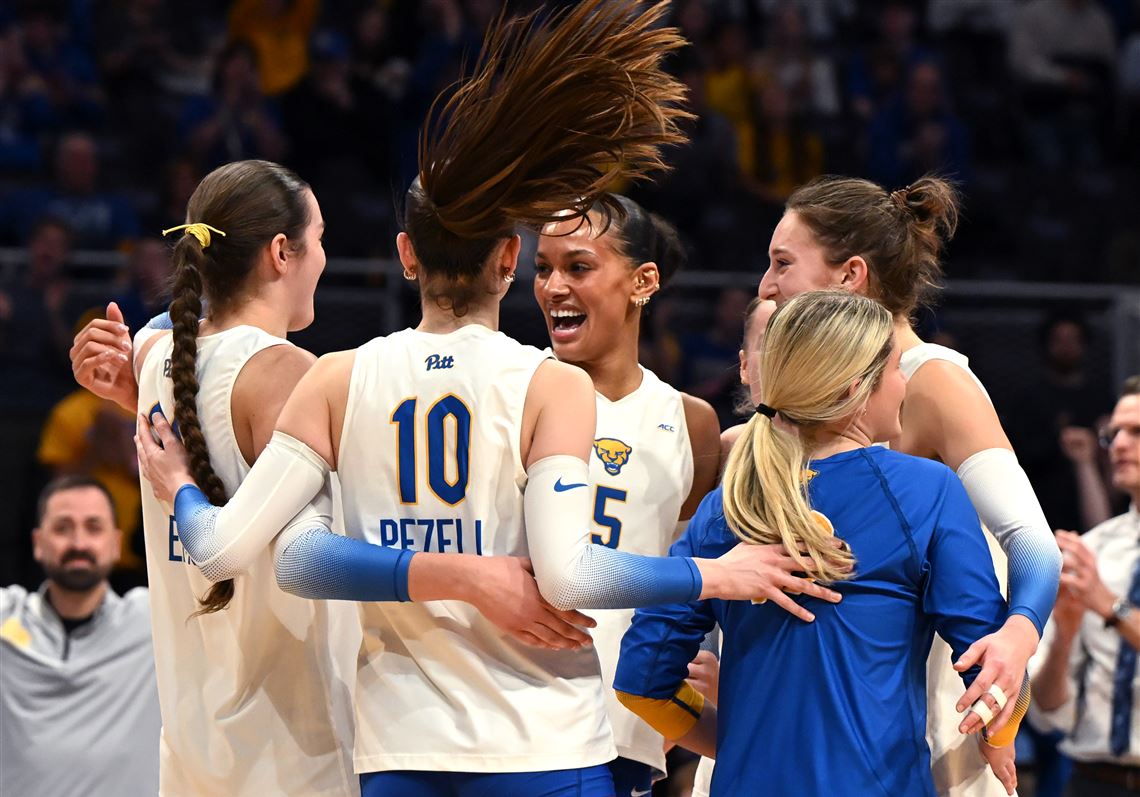Sports
Purpose over profit


No doubt, the way that BYU does things is different from most universities.
“BYU Athletics has to operate in the black,” said BYU athletics associate athletic director of finance and scheduling Dallan Moody.
Installing cushy seats in LaVell Edwards Stadium or some LED signage at the Marriott Center can’t begin until they’ve been fully paid for, he explained. And the funding is self generated. But where do these millions of dollars come from?
This is where the BYU Corporate Sponsorship team comes in.
This team, also known as CST, is in charge of finding sponsors, maintaining relations, and fulfilling their contracts to generate revenue for BYU Athletics.
The CST will put on events like golf tournaments for players, basketball tournaments for partners, and even host CEOs of the sponsors and the apostles of The Church of Jesus Christ of Latter-day Saints for meals.
That’s some of the more noticeable work. But there’s much more that goes into it behind the scenes.
“ There’s two sides, right? There’s the meeting of apostles in the annex side, and then there’s spending a full summer day changing bathroom signage at LaVell Edwards Stadium,” CST intern Ethan Johnson said.
The replacement of bathroom signage featuring Quick Quack and Brady Industries is just one example of the many sponsor ads the CST is responsible for managing across all BYU-owned stadiums and arenas.
BYU associate athletic director over sponsorships, Casey Stauffer, says it is actually quite unique that BYU has its own team.

Many colleges fall under one of two third-party companies in the college sponsorship landscape: Learfield or Playfly.
According to Learfield.com, the company has secured “nearly 200 Division I athletic programs and conferences,” and Playfly.com states that it has inked deals with over 65 athletic departments, including teams like Texas A&M and University of Nebraska.
With the NCAA reporting just over 350 D-1 athletic programs in existence, those two companies end up controlling sponsorships for over half of those.
These usually are a great revenue for schools that simplify the process of sponsorship work, but BYU has unique requirements for who is even able to sponsor with them, according to Stauffer.
Early in his career at BYU before being an associate athletic director, Stauffer was walking through Legacy Hall on BYU’s campus, when a man in a Budweiser uniform motioned over to him.
“Hey, do you work here?” the man said.
Stauffer responded that he did.
The man explained that he’d never been to Provo, was just driving through, recognized BYU, and thought he’d stop by. As he took a walk around LaVell Edwards Stadium, something caught his eye.
“I’m walking around looking at all this stuff and this is amazing but I stopped by your stadium and I noticed there’s no beer partner,” he said.
This caught Stauffer off guard.
“I honestly thought he was joking,” Stauffer said. “I truly thought like there’s no way … So I’m just laughing. I’m like, ‘Oh, yeah, you know, we tried, but they just couldn’t afford it.’”
Turns out the man was sincere in his question, asking if Stauffer was sure, because he was “positive” that there was “plenty of money” to sponsor such a huge stadium.
“And then I realized he wasn’t joking,” Stauffer said. “And I was like, ‘Well, let me explain why.’”
So Stauffer got to have a “missionary moment” with him explaining that Latter-day Saints — and by extension pretty much anybody at BYU — don’t drink alcohol, so a beer sponsorship wouldn’t work out for the two sides.
Suffice it to say, BYU is different. Along with alcohol the Honor Code doesn’t allow for coffee, tea, premarital sex, smoking and drugs. So anything that promotes those things is a non-starter, according to Stauffer.
Even companies that BYU has worked with can forget that sometimes. For instance, one time an employee working for ISP (the company that used to manage BYU Athletics sponsorships and was one of two major players in college sports multimedia rights at the time) excitedly called Stauffer to tell him they sold a contract with Keurig Coffee.
“ I remember the national team calling and saying, ‘Hey, we sold this deal to Keurig Coffee, and we’re gonna promote it at BYU Games,’” Stauffer said. “I said, ‘Oh, you can’t do that.’ And they said, ‘Well, no, we already sold it, so you have to do it.’ I’m like, ‘no, you can’t do that. It will not happen here …’ So in that vein I had to represent BYU, but also work for ISP.”
The uniqueness of BYU even led the CST having to end a partnership with a longtime local chain restaurant partner due to some risque TV advertising that the national organization was choosing to adopt.
Due to these unique circumstances, BYU chose a route few have gone — taking its sponsorship team in-house.

TAKING IT HOME
In 2006, BYU Athletics partnered with ISP to outsource their sponsorships and marketing.
These companies purchased rights to sell on-court promotions and signage, providing schools with a guaranteed revenue stream while taking on the responsibility of hiring and paying staff.
Stauffer was brought on to help out and the partnership worked great, giving BYU three full time people working just on sponsorships.
Before, sponsors usually came to BYU on their own by reaching out first. But the partnership with ISP introduced a more proactive approach, where BYU actively sought out sponsors.
“It was a huge difference,” Stauffer said. “You double your workforce and you take an organic approach and make it a progressive, proactive approach … And if my memory serves me, I think from that first year we grew $2 million in the first year, and then in the second year we grew another $1.5 million. And so people are going, ‘Oh wait, like, this is more money than BYU had ever seen.’”
BYU worked well with ISP for a few years and as such developed a lot of trust with the president of the organization, Ben Sutton. Stauffer said that he was “a dear friend” who was honest and would follow through on everything he said he’d do.
The difficulty came when Sutton one day decided to sell his company. None of his children wanted to take it over, so a bigger company called WME took over.
For BYU, this lessened the amount of direct control over sponsorships and conflicted with BYU’s desire to maintain meaningful, long-term relationships rather than aggressively extracting maximum profits from community partners, due to the pressure to continuously grow revenue.
“ When he sold, it wasn’t like that direct relationship with Ben anymore. You became a part of a massive machine,” Stauffer said.
Additionally, BYU felt it had less control over who it partnered with.
“It’s always been important to BYU to be able to have a lot of input and influence on the partnerships that we have,” Moody said.
The team wanted to avoid taxing their sponsors in what felt like “unnecessary ways.”
“We got to go to church with these people and we don’t want them to feel like every year we’re just trying to get every single penny they have out of them. We want relationships with them,” Stauffer said.
And those high demands from a third-party company such as WME were pushing Stauffer and other BYU employees away from doing business the way they felt they should. The team wanted to make sure that the understanding of who they represent as university remained intact.
“Doing well financially should never come at the cost of what we stand for,” Stauffer said.
“And sometimes that would be challenging with a third party where you’re mostly aligned but sometimes you see things a little bit differently,” Moody said. “And so they had a change of ownership and that gave us the ability in our contract that we put it in there … that said we could then bring it in-house if we wanted to end our contract with them.”
So BYU had a big meeting with athletic director Tom Holmoe, former BYU President Kevin Worthen, and other BYU athletics leaders to discuss making a switch. By the end it was determined that going in-house was worth it.
And BYU’s CST was born.
These changes have given BYU unparalleled control over what kind of sponsors it has while also being able to establish a relationship-driven approach for sponsors.

RELATIONAL SUCCESS
In the past when there were some economic downturns, Stauffer explained that the expectation would be that if staff members didn’t hit their numbers they’d get fired. Many businesses run that way effectively. But it put a lot of stress on “creating transactional sponsorships rather than relational sponsorships,” Stauffer said.
This could incentivize those selling the contracts to sell whatever they could to hit them number. But was that really the best long term for BYU? The university didn’t think so.
So BYU developed a strategy once they came in-house to enhance the experience and relationships built with their corporate partners, focusing on long-term building and growing over time, as opposed to short-term gains.
Rather than simply closing deals, the team prioritizes making sponsors feel like part of the BYU family through personal touches and memorable experiences.
“We really do try to make these sponsors a part of our lives,” Stauffer said. “We know who they are, we know their spouse, we know their birthdays, we know their anniversaries, we know their kids’ birthdays — and that means something. We want to make sure they know that we care about them and we’re grateful for them.”
One of the most notable initiatives is the Champions Club, which includes BYU’s top 12 corporate partners, collectively committing $12 million annually for at least 10 years. These people get access to their own hospitality area called Champions Terrace, a hospitality area located on the elevated platform linking the north and east stands of the stadium.
The club’s approach goes beyond financial.
“They understand they’re part of the family and are helping make all of that happen,” Stauffer said.
To strengthen these bonds, BYU regularly hosts unique experiences for sponsors, including golf tournaments, flag football games coached by BYU athletes, a 3-on-3 basketball tournament featuring Ryan Smith, owner of the Utah Jazz (his team most recently won) and even behind-the-scenes trips to away games.
Stauffer took a big group of sponsors out to most recent away BYU football games against teams like Arkansas and Tennessee, both of which were huge wins for the program in SEC territory.

“You go from high to low to high and then you’re flying home on the plane afterward with all these guys, and those are experiences that last a lifetime. It’s stuff that people are going to tell their kids about,” Stauffer said.
One memorable moment involved organizing a surprise homecoming for a military dad, with multiple partners contributing to make the event possible.
And even something as simple as someone’s birthday is worth making special for the CST.
“It was one guy’s birthday and his wife had called me and said, ‘Hey, I want to do something special. Do you think we can?’ I’m like, ‘I got you,’” Stauffer said.
Little did the husband know that the CST arranged for him to run the flag out for the football team. They got the husband down on the field and then told him what was going to happen. He was elated.
“Are you serious?” he said.
“Just don’t fall over,” Stauffer said.
The fulfillment team for the BYU CST is the “secret sauce” that facilitates many of these experiences. Their job is to make sure that what is contractually obligated is done but then go beyond.
“It’s building these memories. It’s building these experiences,” Stauffer said. “The money’s important, but when people buy in and understand what BYU means and represents, it’s so much easier to talk about, ‘What do you want to do?’ or ‘How can we help you? You know how you can help us is by giving us money, right?’ But how do we negotiate so that when you walk away at the end of the day you go, ‘My experience with BYU is second to none.’”
This buy-in has helped BYU to reach sponsorship revenue rivaling that of college powerhouses like Oklahoma and Texas, along with helping BYU Athletics financially in times of need.
One of these times came in 2020, when COVID hit and few fans were allowed in the stands.
“For us, our major revenue streams are donations, ticket sales, Big 12 media rights and sponsorships,” Moody said. “And so, if any of those doesn’t fire on all cylinders, then, yeah, that puts a serious dent in our ability to fund the sports and the initiatives that we’re trying to do to compete at the highest level against our peer schools.”
Without many fans in the stands, sponsors were not getting as much exposure in LaVell Edwards Stadium as they might have expected. This, along with a lot of businesses closing down, might have caused issues on the ever-important sponsorship revenue.
But many sponsors came through in this time of need for BYU Athletics. The CST had helped them through their own financial struggles in the past, so they were willing to reciprocate.
“It’s a good give and take sometimes to say, ‘Hey, we get it. You’ve been with us for X number of years. We’ll work through that with you and we’ll adjust as needed.’ So that’s why I just think it’s kudos to them for being great partners for us. And likewise, we’d like to think we’re good partners for them,” Moody said.
The focus on relationships has also strengthened the team bond.
“I love the team,” CST intern Ellie Johnson (sister of Ethan Johnson) said. “This is such a special group of people who love each other, and they love what they do. That just brings a lot of passion into the job. We’re all friends outside of work as well.”
Ethan Johnson said the team is made up of “diehard fans,” often seen chatting about game results or team stats when they’re not directly working on sponsorships. Among the interns, a group chat lights up during away games as everyone follows the action.
They’ve faced their fair share of challenges, too — like when rain and lightning delayed a promotion involving tickets taped under a seat at a BYU soccer game.
Another time, the CST golf cart broke down midway between the Student Athlete Building and the stadium.
“We just had to push it all the way back to the SAB. And that could be such a bad experience, but because we’re just so close it was just so much fun,” Ethan Johnson said.
And when real tragedy strikes the CST has each other’s backs. One instance was when one of Moody’s sons with special needs passed away and his co-workers from BYU Athletics showed up to support at the funeral.
“It’s just special when you have that relationship with the co-workers that you have, where they’re just there for you,” Moody said. “They kindly put together a little package and sent us — my family — all to Disneyland. Just on their own. It was a sweet thing for our family to do in the months afterwards … I can never forget people like that. It’s awesome.”
Why This Way?
The relationship-driven approach has brought many benefits to the success of BYU Corporate Sponsorships. At its core, BYU does things this way — and earns some of its most loyal sponsors — because of the church it represents.
Ellie Johnson explained that BYU CST has “buy-in to the mission” of the university. And that mission aligns with the mission of The Church of Jesus Christ of Latter-day Saints.
“When you think of BYU as an athletic organization, it may not have the same name value as Ohio State or Kentucky basketball,” Ethan Johnson said. “And yet, you see BYU being able to compete not only on the field but financially with these partnerships. I think that’s just because we stick to those values that we learn as Christians and as followers of Jesus Christ. There’s no cutting corners. You just do things right, and then you trust that results will follow.”
“Being a part of BYU just gives athletics a big megaphone to amplify the church,” Moody said.
Working in BYU Corporate Sponsorships has given Stauffer plenty of unique opportunities to share his faith.
At a sponsorship dinner with representatives from about 30 other universities, the president of the organization — knowing Stauffer was religious — asked him to offer a prayer before the meal.
Stauffer prayed in the traditional Latter-day Saint manner, recognizing Jesus Christ. Afterward, a few attendees questioned why he had prayed that way.
It opened up a conversation around the table.
“Look, I was asked to pray, so I’m going to pray how I pray. If you were asked to pray, you’re going to pray how you pray. Why is that an issue?” Stauffer said. “And so we had this huge conversation — 30 universities sitting around a table — having a religious conversation about prayer and about Christ. It was amazing.”
Another experience was more personal — one he shared with a friend from Baylor University.
“I was out on a road trip and have a dear friend who was at Baylor,” Stauffer said. “We were roommates at this conference. And so he comes in, and he is an absolutely amazing person — devout Baptist — and we’re staying at a Marriott. And he’s like, ‘Hey, you mind if I ask you some questions?’”
Stauffer told him to go for it.
“‘Tell me about your church,’” his friend said. “‘I met a few Mormons. And a lot of other people are pretty hard on members of your faith … I know that’s not my experience. So, tell me a little bit about your faith and your religion. And tell me about Joseph Smith.’”
“OK, well, do you mind if I grab a book real quick?” Stauffer said.
“Sure,” his friend said.
To his friend’s surprise, Stauffer pulled a copy of The Book of Mormon from the desk. He explained that Marriott is owned by Latter-day Saints and nearly all their rooms have copies of the Book of Mormon.
“Blew him away. Absolutely just blew him away,” Stauffer said. “So, we had this conversation and we talked about Jesus, and we talked about who Jesus is. And he’s like, ‘I believe that. I think we believe in the same Jesus.’”
The conversation allowed the two to find common ground in their different religious backgrounds while growing their shared understanding of Jesus Christ.
Opportunities to share the gospel are a unique part of working in sponsorships at BYU — and they’re a powerful motivator to do the work well.
“These moments are so fulfilling to me. I want BYU to be the best. I want to win every national championship, because I want my school to be what everybody else looks up to,” Stauffer said.
Stauffer acknowledges that that may be seen as a “selfish” thought. But he wants BYU to find success for a more personal reason.
“In the broad spectrum of things, in an eternal perspective, sports don’t matter that much,” Stauffer said. “But it is such a huge avenue for people to learn about not only our school, but our faith — and that’s what matters the most to me.”
Sports
Cincinnati Enquirer names 2025 girls volleyball all-city teams
Updated Dec. 10, 2025, 8:20 p.m. ET
The 2025 high school girls volleyball season brought two state championships to Cincinnati and a state runner-up to Northern Kentucky.
But more than that, the action on the court each night showcased some of the best talent each state had to offer.
Here are The Enquirer’s 2025 all-city teams for each division in Ohio, plus Northern Kentucky and Indiana.
Sports
Pitt volleyball to host 2026 Opening Spike Classic
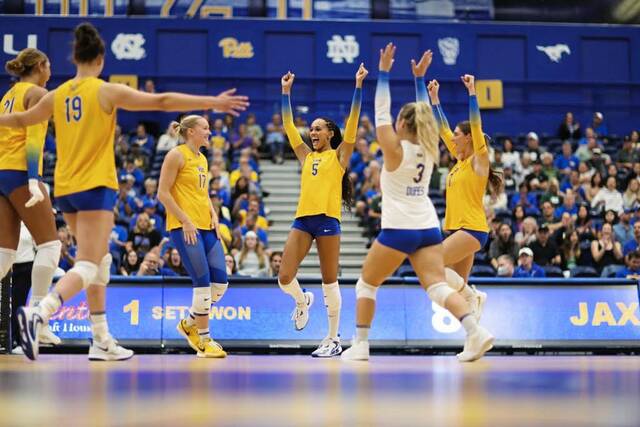
Pitt volleyball will begin the 2026 campaign with two major tests, as the Panthers were announced as hosts for the Opening Spike Classic, featuring matchups against Kansas and Wisconsin.
The two-day event at Petersen Events Center will be televised nationally on ESPN and see Pitt play the Jayhawks Aug. 28 and Badgers on Aug. 30. Stanford and Wisconsin also play on the event’s first day, followed by the Jayhawks vs. the Cardinal on Day 2.
The Opening Spike Classic debuted last season with the Badgers playing host to matches featuring Kansas, Creighton and Texas.
“We’re excited to kick off opening weekend by hosting three of the best teams in the country,” Pitt coach Dan Fisher said in statement. “Fans can look forward to high-level volleyball right here in Pittsburgh. If we want to be the best, we have to play the best, and we’re doing that right away.”
The No. 1-seeded Panthers (28-4, 18-2 ACC) host No. 4 Minnesota at 7 p.m. Thursday in the NCAA Tournament regional semifinals.
A win over the Gophers would propel the Panthers, who have advanced to the Final Four for the last four consecutive seasons, to the Elite 8, where they’d face the winner of the regional semifinal match between No. 2 SMU and No. 3 Purdue.
Next year’s Opening Spike Classic participants — Stanford, Kansas and Wisconsin — are all also currently competing for a national title.
No. 4 Kansas faces No. 1 Nebraska on Friday night, while No. 2 Stanford and No. 3 Wisconsin square off in the afternoon.
The Opening Spike Classic is organized by PlayFly Sports in collaboration with JMI Sports, exclusive multimedia rights holder for Pitt Athletics.
“We are thrilled to be bringing this event back for a second year and to build on the momentum we created with the event launch last year,” said Michael Neuman, co-head of Playfly Sports Consulting. “The Opening Spike Classic is a celebration of women’s achievements in sports, and there is no better way to recognize that than by bringing together these top college volleyball teams to compete.”
Justin Guerriero is a TribLive reporter covering the Penguins, Pirates and college sports. A Pittsburgh native, he is a Central Catholic and University of Colorado graduate. He joined the Trib in 2022 after covering the Colorado Buffaloes for Rivals and freelancing for the Denver Post. He can be reached at jguerriero@triblive.com.
Sports
Nebraska Huskers Dominate All-Region Volleyball Honors
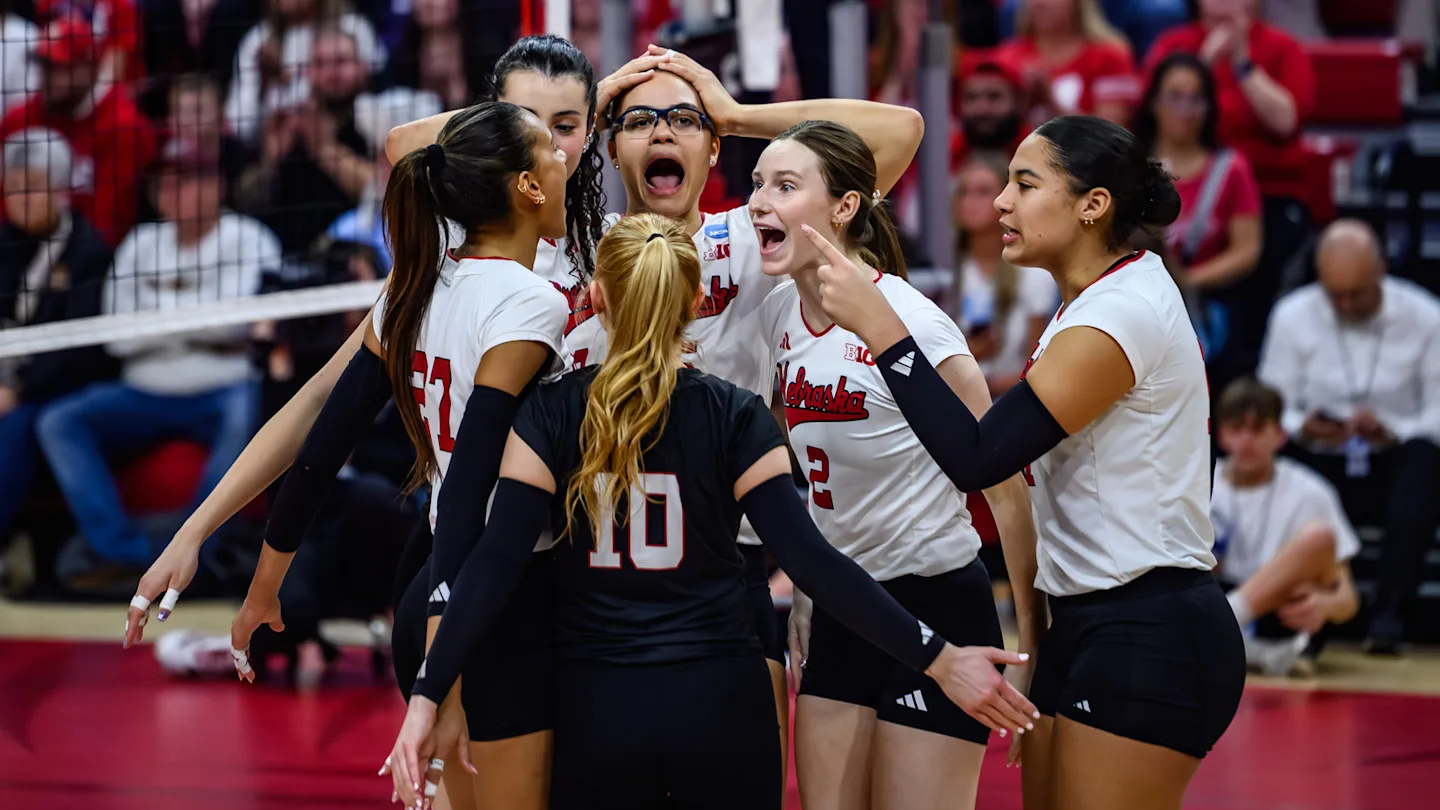
Nebraska is once again taking the collegiate volleyball world by storm, entering the 2025 NCAA Tournament as the No. 1 overall seed. So it’s no surprise the Huskers dominated some of the sport’s top honors announced on Tuesday.
AVCA West All-Region Team
Bergen Reilly

Junior setter Bergen Reilly showcased Nebraska’s excellence on multiple levels. She was one of five Huskers named to the AVCA West All-Region Team, which is an impressive accomplishment on its own. This marks her third straight year earning All-Region recognition, and she has continued her high-level play this season. Thanks in part to Reilly’s elite setting, Nebraska is on track to break the single-season school record with a .353 team hitting percentage. That mark leads the nation and is the best posted by any Big Ten team since Penn State in 2009.
This set is ridiculous. Happened in Nebraska’s season opener in August. Turned out to be a sign of what was to come during Bergen Reilly’s junior campaign.
She’s the 2025 Big Ten Player of the Year & Setter of the Year. #Huskers @BergenReilly @1011_News pic.twitter.com/8EJTVkwMji
— Kevin Sjuts (@kevinsjuts) December 3, 2025
Reilly’s standout season did not end there. She was also named the AVCA West Region Player of the Year, becoming the fourth Husker and the third in a row to earn the honor, joining Kelly Hunter (2017), Merritt Beason (2023) and Lexi Rodriguez (2024). She continues to collect accolades this season as the 2025 Big Ten Setter of the Year and a First-Team All-Big Ten selection. She also earned the 2025 Big Ten Volleyball Player of the Year, the first time she has received that award.
Rebekah Allick

Senior middle blocker Rebekah Allick is putting together one of the strongest seasons of her Husker career. She continues to be a reliable presence on both sides of the net, contributing efficient offense while anchoring Nebraska’s front-row defense. Her play earned her All-Big Ten First Team honors for the first time, a deserved recognition after years of consistent contributions.
POWER from Rebekah Allick.
📺: ESPN+ x @HuskerVB pic.twitter.com/PLd7Dn9UQk
— Big Ten Volleyball (@B1GVolleyball) December 6, 2025
Allick has also climbed into rare company in the program’s rally-scoring era. With 536 career blocks, she now ranks fifth all-time at Nebraska, a mark that also places her fifth among active Division I players. Her presence at the net has been a integral part of Nebraska’s identity this season, and she continues to rise to the moment when it matters most.
Laney Choboy

Junior libero Laney Choboy has been the steady heartbeat of Nebraska’s backcourt all season. She’s the one holding things down defensively, reading attacks and keeping rallies alive with the kind of confidence and toughness every championship team needs. Her efforts earned her a spot on the All-Big Ten Second Team.
Relive all of Laney Choboy’s great saves on this play 🤯
📺: FS1 pic.twitter.com/6rI7zxaMjR
— Big Ten Volleyball (@B1GVolleyball) November 7, 2025
Choboy has already totaled 276 digs on the year and counting, a testament to just how reliable she is in big moments. She’s delivered several standout performances, including a career-best 20 digs against Illinois and another strong night with 15 at Minnesota. When the Huskers need a spark on defense, she’s almost always the one providing it.
Andi Jackson

Junior middle blocker Andi Jackson has been one of Nebraska’s most consistent and explosive attackers this season. She continues to elevate her game year after year, earning All-Big Ten First Team honors for the second consecutive season.
ANDI. FREAKING. JACKSON.
ARE YOU KIDDING????? 🤭🤭🤭🤭
🎥: ESPN+ pic.twitter.com/U4rR21nfcu
— Nebraska Volleyball (@HuskerVB) December 6, 2025
Jackson has also established herself as one of the most efficient hitters in the country. Her hitting percentage not only leads the nation but also stands as the best single-season mark in Nebraska volleyball history. Combined with her reliable performance at the net defensively, Jackson has become a foundational piece of the Huskers’ success.
Harper Murray

Junior outside hitter Harper Murray has emerged as one of Nebraska’s top offensive threats this season, setting career highs with 3.51 kills per set and a .299 hitting percentage. Her strong play earned her All-Big Ten First Team honors for the first time.
HARPER MURRAY ISN’T PLAYING AROUND 🤫#NCAAWVB x 🎥 ESPNU / @HuskerVB pic.twitter.com/qy97P7nUn2
— NCAA Women’s Volleyball (@NCAAVolleyball) December 10, 2023
Murray contributes in every phase of the game. She averages 2.14 digs per set, leads the team with 30 aces, and adds 58 blocks, giving her a team-leading 4.16 points per set. Her all-around skill and steady production make her a key piece of the Huskers’ success.
Honorable Mention
Virginia Adriano

Freshman opposite hitter Virginia Adriano is already giving a glimpse of Nebraska’s future, earning a spot on the Big Ten All-Freshman Team in her debut season. Originally from Turin, Italy, Adriano has quickly made an impact on both sides of the net, averaging 2.20 kills per set with a .284 hitting percentage, along with 0.66 blocks per set and 14 service aces.
You can hear the force when Virginia Adriano makes contact with the. ball 😳
📺: Big Ten Network pic.twitter.com/zz1nBAMbVR
— Big Ten Volleyball (@B1GVolleyball) September 7, 2025
She has risen to the occasion in conference matches as well, contributing 2.34 kills per set with a .318 hitting percentage. Beyond her on-court contributions, Adriano’s presence shows the growing opportunities for international athletes in college volleyball, opening doors for future players from around the world. Her all-around play and poise as a freshman indicate she will be a major contributor for the Huskers for years to come.
Taylor Landfair

Senior outside hitter Taylor Landfair has been a key player for Nebraska this season, hitting a career-best .316 and averaging 2.09 kills per set, which earned her All-Big Ten Second Team honors.
TAYLOR. LANDFAIR.
THAT’S THE TWEET. #GBR pic.twitter.com/eHPbCZmucI
— Nebraska Volleyball (@HuskerVB) November 15, 2025
Landfair’s impact goes beyond this season. She was a 2022 AVCA All-American and has appeared in the most career matches of any active Division I player, with 151 contests. She also ranks 20th among active Division I players with 1,517 career kills, reflecting her consistency and durability throughout her Husker career.
Head Coach

The players can only go as far as their head coach allows, and Nebraska head coach Kelly Busboom has given them every opportunity to flourish. Busboom was honored as the AVCA West Region Coach of the Year.
In her first year at the helm, Busboom led the Huskers to a perfect 30-0 regular-season record, including a 20-0 mark in Big Ten competition. Her debut earned her AVCA West Region Coach of the Year honors and the Big Ten Coach of the Year award, making her the first coach in program history to capture a conference title in their inaugural season.
Given the dedication and performance of these players, it was clear that Busboom was the coach most deserving of such recognition.
These awards and honors are well-earned, but they also tell a bigger story. The Huskers extended their win streak to 32 with a sweep of Kansas State on Saturday, Dec. 6, in the first round of the NCAA Tournament, remaining undefeated. This team is full of talented players who understand what it takes to win.
Week after week, they perform at the highest level, delivering a masterclass in volleyball and making a definitive statement in the collegiate game. Many of these athletes are on their way to becoming Nebraska volleyball legends, leaving a lasting mark on the program.
More From Nebraska On SI
Stay up to date on all things Huskers by bookmarking Nebraska Cornhuskers On SI, subscribing to HuskerMax on YouTube, and visiting HuskerMax.com daily.
Sports
Pitt volleyball among four elite programs set for 2026 Opening Spike Classic
Sports
Three Golden Knights Named AVCA All-Americans
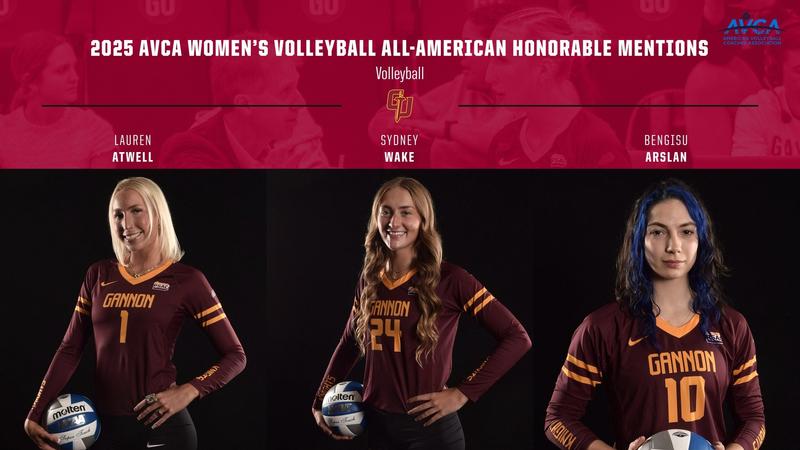
LEXINGTON, Ky. – The American Volleyball Coaches Association today released its 2025 AVCA All-Americans. Included in the list are three Gannon players – Bengisu Arslan (Ankara, Turkey/Private Çankaya Doga Anatolian), Lauren Atwell (Mars, Pa./Mars Area), and Sydney Wake (Massillon, Ohio/Jackson). It comes after Gannon had four honorable mention All-Americans a year ago, although all graduated.
The Golden Knights are currently in Sioux Falls, SD preparing for the NCAA Division II Elite Eight. Head coach Matt Darling‘s squad won its second straight Atlantic Regional to advance to the Elite Eight. Gannon is the number seven seed and will face No. 2 seed Concordia-St. Paul, the Central Region champion, at 2:30 p.m. on Thursday.
Makenna Nold of Concordia-St. Paul was named the AVCA Division II Player of the Year.
Arslan is now a two-time AVCA Honorable Mention All-American after previously earning the honor in 2022. The native of Ankara, Turkey was earlier named to the AVCA All-Atlantic Region team for the second time and is also a D2CCA All-Atlantic Region selection.
Gannon’s setter was chosen the PSAC West Athlete of the Year and is now a three-time All-PSAC West selection. She was a first team choice in 2022 and 2025 and was named to the second team in 2024. In addition, she was the 2022 PSAC West Freshman of the Year.
Arslan enters the Elite Eight with has 1,3759 assists, the second-highest season total. In fact, she now owns three of the top nine season assists totals, in the process boosting her career total to 4,481 assists. That is also good for second all-time. She leads the PSAC in assists per set (11.18), good for 10th in Division II.
She also stands second on the team in service aces (46) and third in digs with 298. She now has 1,140 career digs. She is tied for seventh in career service aces (175), along with seventh in sets played (457) and tied for eighth in matches played (128).
Atwell and Wake are first-time AVCA All-Americans, with Atwell the force at the net and Wake emerging as Gannon’s top hitter. Both were previously named first team AVCA All-Atlantic Region performers and second team D2CCA All-Atlantic Region selections. They were both also named to the All-PSAC West first team.
A 6-foot-3 middle blocker, Atwell leads the Golden Knights with 105 blocks, with team highs of 28 solo blocks and 77 block assists, while tied for in kills with 260. She ranks ninth in the PSAC in blocks per set. The junior also leads the team in hitting percentage at .333, good for fourth in the PSAC. She has moved up to fourth in career blocks with 365.
Wake entered her junior season with 82 career kills but the 5-foot-11 middle blocker has exploded for a team-high 347 kills and is second in hitting percentage at .298. She is also third in total blocks with 66 and fifth in digs with 133.
All three players were named to the Atlantic Regional All-Tournament Team last weekend.
Sports
Becker, Marusak and Stow Earn All-American Accolades
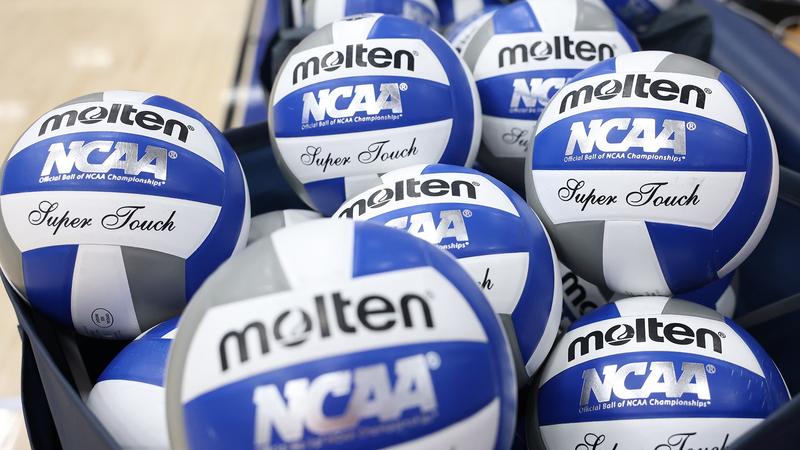
CANYON, Texas – West Texas A&M’s Emma Becker, Currie Marusak and Taytum Stow earned the highest honor a Division II volleyball student-athlete can receive on Wednesday as the trip of Lady Buffs were tabbed All-Americans.
Stow was named a Second Team honoree by the American Volleyball Coaches Association with Becker and Marusak claiming Honorable Mention accolades. Stow was also named to the D2CCA Third Team All-American squad.
Becker earned her third straight AVCA All-American honors as the Liberty Hill, Texas product registered 348 kills with a .212 attack percentage to go along with 17 assists, 10 service aces, 266 digs and 65 total blocks for a total of 396.5 points to average 3.51 per set. Becker was a First Team All-Lone Star Conference selection.
Marusak becomes the 33rd All-American in WT Volleyball history as she led the way offensively for the Lady Buffs during her senior campaign in 2025. The Amarillo High School alum had a team-best 410 kills on 1,008 swings for an attack percentage of .254 to go along with 14 aces, 282 digs and 49.0 blocks for a team-leading 452.0 points to average 4.00 per set as she was named to the All-Lone Star Conference First Team as well as the LSC Championship All-Tournament Team.
Stow, the three-time Lone Star Conference Defensive Player of the Year, became one of the top players in Division II Volleyball during her storied career. The Hereford, Texas product is now a four-time All-American as she set new school all-time marks in total blocks and solo blocks this season while leading the Lady Buffs to the program’s 32nd NCAA Tournament. Stow tallied 290 kills with an attack percentage of .396 to go along with 19 service aces, 72 digs and an incredible 155 total blocks to average 1.37 per set.
-

 Rec Sports2 weeks ago
Rec Sports2 weeks agoFirst Tee Winter Registration is open
-

 Rec Sports2 weeks ago
Rec Sports2 weeks agoFargo girl, 13, dies after collapsing during school basketball game – Grand Forks Herald
-

 Motorsports2 weeks ago
Motorsports2 weeks agoCPG Brands Like Allegra Are Betting on F1 for the First Time
-

 Motorsports2 weeks ago
Motorsports2 weeks agoF1 Las Vegas: Verstappen win, Norris and Piastri DQ tighten 2025 title fight
-

 Sports2 weeks ago
Sports2 weeks agoTwo Pro Volleyball Leagues Serve Up Plans for Minnesota Teams
-

 Sports2 weeks ago
Sports2 weeks agoUtah State Announces 2025-26 Indoor Track & Field Schedule
-

 Sports2 weeks ago
Sports2 weeks agoSycamores unveil 2026 track and field schedule
-

 Motorsports2 weeks ago
Motorsports2 weeks agoRedemption Means First Pro Stock World Championship for Dallas Glenn
-

 Sports2 weeks ago
Sports2 weeks agoTexas volleyball vs Kentucky game score: Live SEC tournament updates
-

 Motorsports2 weeks ago
Motorsports2 weeks agoJo Shimoda Undergoes Back Surgery


